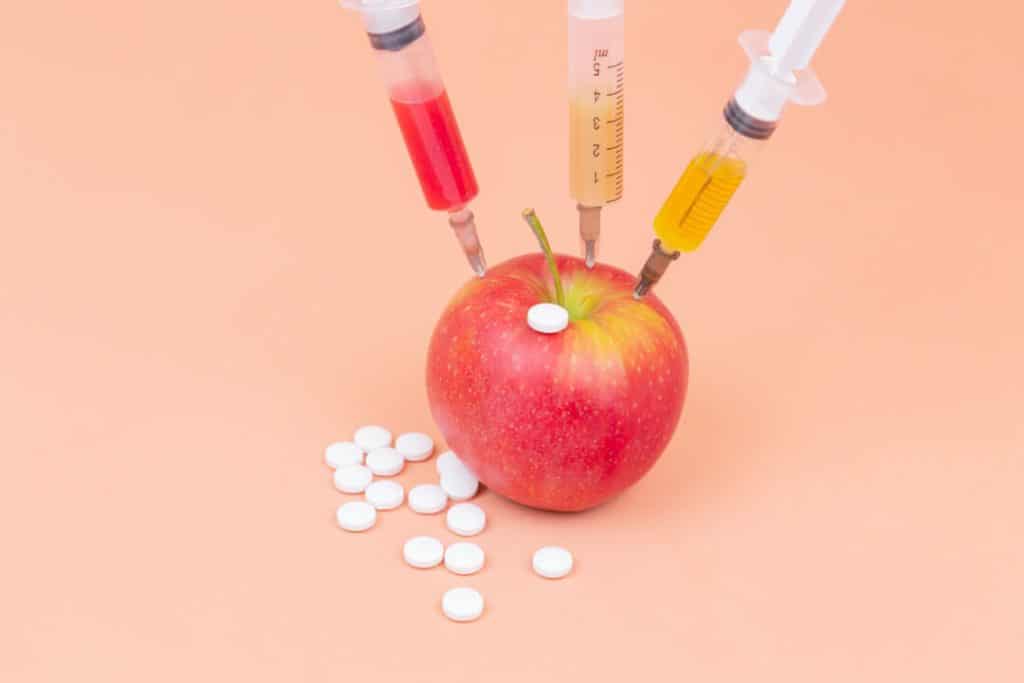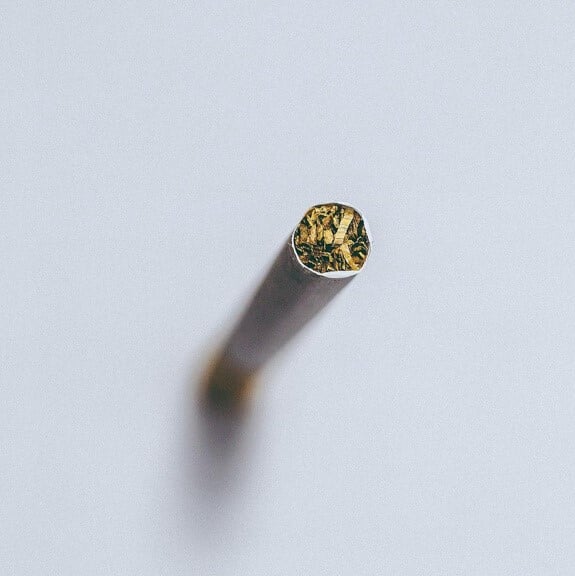Sperm Quality: What Can You Do?
Our advice for optimising your sperm quality
Become a sperm donor / Sperm quality
Reduced Sperm Quality or Normal Sperm Quality?
Lifestyle affects your sperm quality - we've all heard that. It's not wrong, but a man's sperm quality is primarily genetically determined. This doesn't mean that you can't impair your sperm quality with an unhealthy lifestyle. However, it means that even if you follow all the good advice, you're not guaranteed top-notch sperm quality. Disappointing or hooray? - Well, the key lies in how you act on the information! In this article, I will tell you how you can experience a positive effect on sperm quality through lifestyle habits.
Anne/Donor Coordinator

Do You Ensure That Your Testicles Get Air and Cooling?
There is a reason your testicles hang outside the rest of your body. Sperm cells develop optimally at 35°C – two degrees below body temperature. When sperm is formed at higher temperatures, the genetic material becomes unstable because very high temperatures will kill it.
Have you ever thought about why the scrotum pulls closer to your warm body when the outside temperature is low? Conversely, your testicles move as far away from your body as possible when the weather is hot.
In the mission to optimise your sperm quality, it's a good idea to avoid saunas and very hot baths. Also, consider avoiding heat in the car seat, sitting with your computer on your lap, and wearing tight pants.
Sperm cell formation, from when a stem cell in the testicles becomes a mature sperm cell, takes 2½ months (72-74 days). If your testicles are exposed to high heat, your sperm quality may be negatively affected for a couple of months.

Do You Stay Away From Anabolic Steroids?
You've probably heard the many horror stories about steroids. But did you know that the substance can also damage your sperm production? You may be lucky that it returns when you stop, but often it can take many years before it normalises - if at all.
You might be wondering how the substannce is destructive to your sperm. Aren't anabolic steroids testosterone? And isn't testosterone needed for sperm cell formation?The answer is yes - BUT testosterone produced by the body is formed in the testicles, where the concentration of testosterone is about 100 times higher than in the blood. When you take anabolic steroids, it is introduced into the blood but not into the testicles.It is the concentration of testosterone in the blood that regulates whether the Leydig cells in the testicles should produce more - so a high concentration of synthetic testosterone in the blood that means that the Leydig cells do not produce much testosterone, resulting in a decrease in the concentration in the testicles, causing sperm cell formation to stop. If this continues for an extended period, you risk damaging your sperm cell formation.

Do You Eat Healthy and Exercise?
A generally healthy lifestyle with a low-fat, healthy, and varied diet and moderate exercise often leads to better sperm quality. Conversely, a high-fat diet, overweight, and a high intake of sugary drinks correlate with poorer sperm quality.
However, not all studies are equally convincing, and it is still unclear whether the connection between a high intake of sugary drinks and sperm quality is due to the sugary drinks themselves – or whether the study participants who consumed many sugary drinks simply lived more unhealthy lives overall than the other participants. Researchers generally agree that sperm cell formation requires various vitamins, minerals, and antioxidants, including vitamin D, zinc, selenium, and Q10 (ubiquitin), and a deficiency in some of these can impair sperm quality. If you eat a healthy and varied diet, you cover your daily needs for most vitamins, minerals, and antioxidants. You primarily get vitamin D through the sun, as your skin produces vitamin D when exposed to sunlight. However, this also means that, although vitamin D can be stored in our fat tissue, most of us on the northern hemisphere will experience a vitamin D deficiency in the last winter months. During those months, it's fine to supplement your diet with vitamin D, unless you have a vitamin D-rich diet, for example, by eating a lot of fatty fish.

Do You Smoke?
Smoking can also reduce sperm quality. We can't help but mention that maternal smoking during pregnancy can also affect your sperm quality. Of course, you can't use that information regarding your own sperm quality, but you can take steps to ensure that your girlfriend/wife doesn't smoke during pregnancy.

Are You Aware of Your Stress Level?
Being stressed can indeed affect your sperm quality. In the sperm bank, we clearly see how most men are affected during exam periods.

How is Sperm Quality Measured (Sperm Analysis)?
The quality of sperm samples is determined by several parameters. Quantity is one parameter, primarily referring to the concentration of sperm cells in a sample, measured in millions per mililitre. The total amount of sperm cells in the sample (concentration x volume) also matters, as does the quality of the counted sperm cells for assessing male fertility.
Fertility and Sperm Quality Are Defined By:
1) The proportion of sperm cells that move. Mobility is called motility in professional terms. The most interesting sperm cells are those that not only have the ability to move but actually swim forward. These are called progressively motile.
2) The appearance of sperm cells, known as morphology. When examining all the small details (fixing and staining sperm cells, and microscopic examination at a very high magnification), it is considered excellent if 10% of sperm cells are morphologically normal.
3) The DNA stability of sperm cells. This measures the proportion of sperm cells with fragmented DNA. A sperm sample can be normal on other parameters but have a high DNA fragmentation index (DFI), which is associated with reduced fertility.
The World Health Organization's (WHO) definition of normal sperm quality is based on a study of more than 4,500 men who all became fathers without fertility assistance within a one-year period. According to this definition, a sperm sample is considered normal if it has at least: A volume of 1.5 ml 15 million sperm cells per ml (dead and alive), of which at least 40% are motile, 32% are progressively motile, and 4% are morphologically normal.
As a sperm donor, your sperm quality should be significantly better than the criteria mentioned above. Additionally, it should tolerate freezing relatively well, as the tolerance to freezing varies among sperm cells.
REMINDER! Your Sperm Quality Varies Just Like Any Other Man's
Having said all this, it's important to remember one last crucial point: Sperm quality is influenced by many factors - many more than mentioned above - and factors that you may not necessarily be able to control. For example, if you recently had a fever, it could also affect your sperm quality.
Therefore, men's sperm quality varies - sometimes significantly. So, even when a sperm sample is taken within the recommended abstinence period, evaluating one sample may not be sufficient to draw a conclusion about your sperm quality.
Also, keep in mind that just because your sperm quality is not sufficient to become a sperm donor, it doesn't mean you can't have children. It's entirely normal for a man's sperm quality to vary. When you're a sperm donor, it's crucial to maintain a consistently high level. Reduced sperm quality does not equate to infertility, but it may take longer to conceive a child.
If you're curious about your sperm quality, you're always welcome to drop by Born, where we offer free sperm evaluations

Antioxidants (Bonus Information)
In the body, molecules called free radicals are formed during many processes. These are molecules that have an unpaired electron in one of their constituent atoms. Such an unpaired electron will "go a long way" to find a partner, and in the process, the free radical can cause damage to both cell membranes and DNA.
Most cells in the body have "a toolbox ready and a crew to repair" minor damages. However, sperm cells do not have this capability, making them particularly vulnerable to free radicals. Fortunately, the body, being amazing as it is, has a defence mechanism in the form of endogenous antioxidants against free radicals. Ideally, the level of antioxidants would balance the level of free radicals. Researchers believe that imbalances in this relationship can affect sperm quality. Therefore, ongoing research explores whether antioxidants can improve sperm quality and, if so, which ones.
Studies Show:
Some experiments with the intake of antioxidant-rich supplements/juices have demonstrated positive results. Conversely, researchers are puzzled by the fact that many antioxidants seemingly are not absorbed through the intestinal wall – at least, metabolites of these antioxidants cannot be found in the blood. Later research suggests that some orally ingested antioxidants may not act as the direct "first-line fighters" against free radicals. Instead, these antioxidants might still strengthen the body's defence against free radicals by stimulating the body's own production of endogenous antioxidants.
Antioxidants are found in fruits and vegetables, and some are present in eggs, fish, and dairy products. Especially very dark (red/blue) berries like blueberries, blackcurrants, elderberries, and aronia contain many antioxidants. Additionally, pomegranate, galangal root, and ginger are good sources of other types of antioxidants.
Do You Have Reduced Sperm Quality or Is It Completely Top-Notch?
Either way, put it to the test with a free sperm evaluation at Born or as a sperm donor with us.
Read more about who Born is here.
